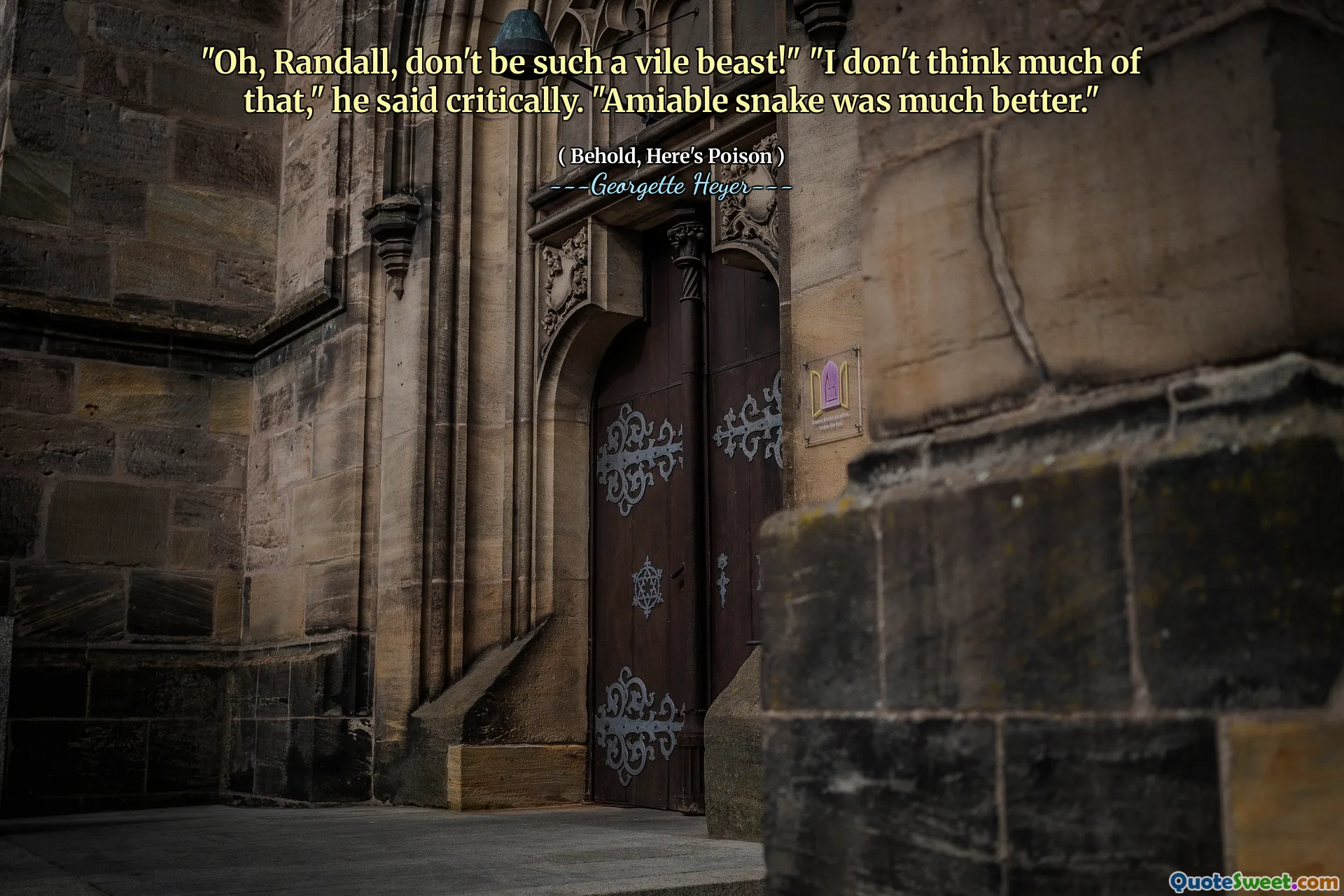
"Oh, Randall, don't be such a vile beast!" "I don't think much of that," he said critically. "Amiable snake was much better."
This quote offers a fascinating glimpse into the interplay of humor, wit, and characterization often found in Georgette Heyer's works. The exchange hinges on a playful insult followed by a clever retort, reflecting a dynamic relationship between the speakers. Referencing someone as a "vile beast" immediately evokes a strong emotional response, yet Randall's cool, critical rejection of the term by comparing it unfavorably to "amiable snake" showcases a sense of irony and self-awareness. This contrast between "vile beast" and "amiable snake" underscores the nuanced way language can soften or intensify an insult, revealing a layered social interaction.
The use of animal metaphors, particularly with such contradictory qualities—"vile" suggesting something repugnant, "amiable" implying friendliness, and "snake" often symbolizing slyness—brings to light the complexity of personalities depicted. This passage highlights how insults can be tempered with humor to reduce hostility and create a camaraderie based on understanding and jest rather than outright offense. It also reflects the sharp, refined dialogue that Georgette Heyer is known for, where words are chosen with precision to convey social subtleties.
From a broader perspective, the quote elegantly illustrates the art of repartee, where quick, witty comebacks serve not only as entertainment but also as insight into character dynamics. Readers are invited to appreciate the intelligence and charm inherent in such dialogues while recognizing the underlying affection and respect masked by teasing. In essence, this passage is a microcosm of social interaction—balancing critique with warmth, seriousness with levity, and individuality with relational ties.






